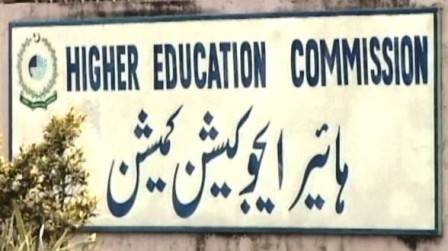A couple of weeks ago, this author wrote an article for The Nation titled Balochistan is being cheated out of its share by HEC. The article was based on the latest annual report of Higher Education Commission (HEC) and used the quoted figures in the report to present a case on how HEC was cheating Balochistan, like the rest of the federal bodies.
A few days after publication of the article, Secretary Education Balochistan Abdul Saboor Kakar held a meeting with HEC officials. In that meeting he used the same article to argue that Balochistan is being discriminated against by HEC. Initially HEC officials were adamant and claimed that Balochistan was getting 10.2% share in HEC as opposed to its 6% share. After a heated debate the HEC Chairman agreed to constitute a committee that would study resource distribution to Balochistan since 2007.
In this article, the author will use data from the annual reports of HEC to prove that Balochistan is getting much less than 6% in HEC resource distribution. The ludicrous claim of HEC chairman that Balochistan is getting 10.2% share will prove to be a misstatement of mythical proportions. In HEC annual reports the data presented is vague and in most places it does not show the provincial distributions. However, where provincial breakup has been shown it presents a very bleak picture for Balochistan.
HEC ordinance 2002 and the Terms of References (TORs) of HEC do not contain information on how the HEC resources should be distributed among provinces. However, HEC annual report 2010-11 has the answer for this question. Executive Committee of National Economic Council (ECNEC) approved provincial quotas in PhD scholarships on 29th July 2011. The share of Balochistan was fixed as 6% and this can be found on page 154 of HEC’s annual report 2010-11.
Three annual reports have been issued after the approval of provincial shares by ECNEC. In none of those reports has Balochistan received PhD scholarships anywhere near its share. In the year 2012-13 Balochistan only managed to get 1.04% of 2,895 PhD scholarships. In 2011-12 Balochistan only managed to get 1% of 5,524 PhD Scholarships. Similarly, in 2010-11 the share of Balochistan in PhD scholarships was at an all time low of 0.11%. So, in last three years the aggregate share of Balochistan is 0.72% as opposed to its mandated share of 6%. This shows that HEC is clearly violating the decisions made by ECNEC.
In 2011, a 6% quota was set for Balochistan and after that Balochistan has got almost 10 times less share. Before 2011 there was no such approved quota by ECNEC and therefore the share of Balochistan was even lesser.
Since its inception in 2002, HEC has released funds of billions of rupees for institution development across the country. Analysis of the data shows that Balochistan has got Rs. 1,727 million so far under this head. It would be shocking to reveal that Islamabad alone has got Rs. 4,830 million for institution development. One city, which is the capital in this case, has been provided three times more funds as compared at an entire province of Balochistan. These figures do not include operating costs and employee salaries where Balochistan always receives the lowest share.
There are several expenditure heads where one can’t find the provincial wise breakup. HEC has invested Rs. 2,826 million on ‘MS Leading to PhD scholarships program.’ One can’t find out what was the share of Balochistan in this scheme due to lack of supply of complete information by HEC.
Likewise, HEC has started a foreign PhD scholarships program under the so-called “Aghaz-e-Haqooq Balochistan package.” This program has been under process for many years and so far not a single candidate from Balochistan has travelled abroad under this program. In fact, the first batch of half a dozen students is about to leave and that’s peanuts given the discrimination faced by Balochistan.
HEC, in all annual reports, has included profiles of one or two PhD scholars from Balochistan and described their success. These profiles are included to give the wrong impression that HEC is helping Balochistan a lot. It’s nothing but sheer propaganda by a federal entity that is trying to cover the unjust and discriminatory treatment that it has meted out to students in Balochistan.
With the passage of time awareness is increasing among masses of Balochistan and HEC can’t continue the discriminatory practice without being called out. So, rather than being adamant and not admitting their wrongdoings, HEC officials should concede the blunders they have committed. They have no other choice because the HEC annual reports are biggest proof against them.
In this context, HEC with the collaboration of provincial government of Balochistan should devise a formula to compensate for the deprived share of Balochistan. The share of Balochistan should be even higher than 6% in next few years to come to compensate for loss of share in previous years.
If HEC officials did not accept the genuine demand of Balochistan then they have to face consequences in form of strong protests from civil society and parliamentarians. Parliamentarians of Balochistan have also been sensitized about this and they have promised to raise it at concerned forums. Civil Society Balochistan has already warned of protests if HEC did not end its discriminatory attitude towards Balochistan.






